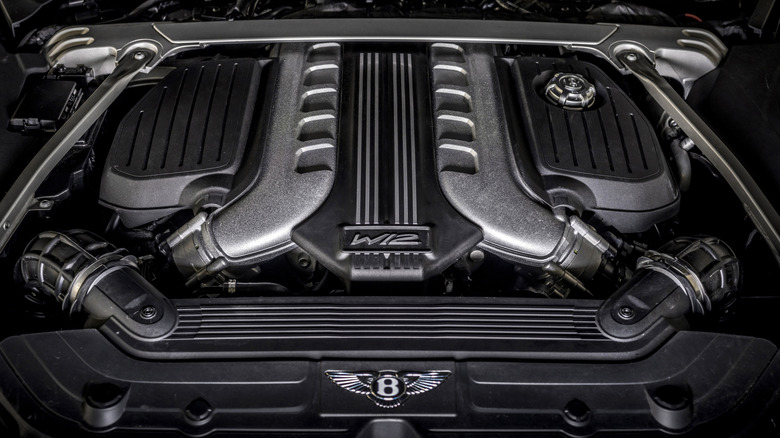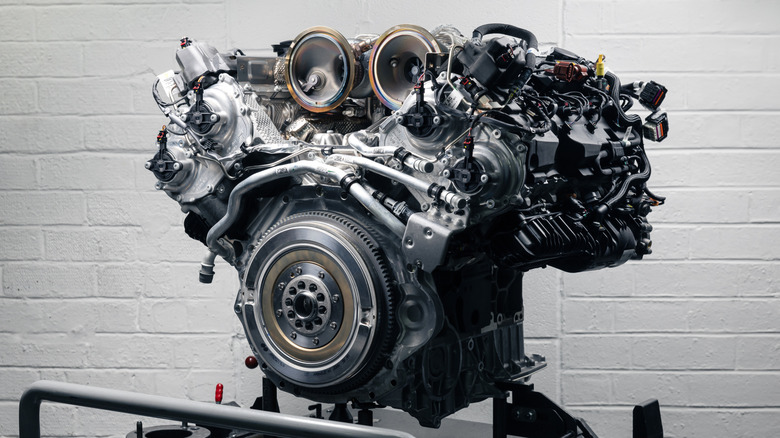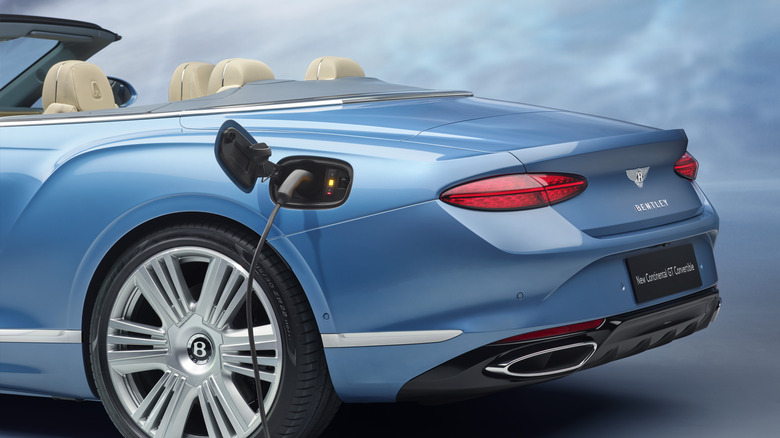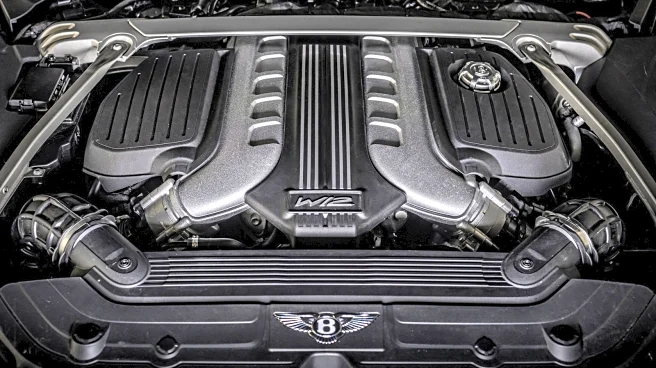
Older Bentley models are widely renowned for their coach-built nature and hand-assembled in-house engines in Crewe, U.K. Since VW bought Bentley in 1998, the company has slowly moved away from coach-built cars
with in-house engines to a modern luxury brand that shares platforms and engines with the wider Volkswagen Group. So does Bentley make its own engines? Bentley used to hand-assemble all of its engines in Crewe, including the VW-designed Bentley W12 engine, until it was discontinued in 2024.
However, when the 6.75-liter V8 ceased production in 2020, it also marked the end of Bentley's in-house engines. Today, Bentley primarily relies on the 4.0-liter twin-turbo V8, an Audi-designed engine manufactured in Hungary and then shipped to fit Bentley models in Crewe. It also relies on a 3.0-liter hybrid V6, also an Audi engine designed and assembled in Hungary. Here is everything you need to know about Bentley engines, who makes them, why, and what the future has in store for the beating heart of Bentley.
Read more: The 10 Best And Worst Engines Made By Major Automakers
Engine Sharing Within The VW Group

Bentley is one of six major car brands owned by Volkswagen, and like all the others, it benefits from the Volkswagen Group's extensive parts bin. Since the research and development costs associated with new V8 engines are easily more than a few hundred million dollars, it's difficult for a low-volume brand like Bentley to ever recoup that investment. This is why engine sharing is such an enticing idea, as it allows Bentley to peek into VW's parts catalog and pick out what it likes the most. The best part is, economies of scale do not just benefit Bentley, but all other VW automakers that use this engine as well.
Parts sharing ensures reliability, lower costs, and parts availability. The aforementioned 4.0-liter twin-turbo V8 is the cornerstone high-performance engine for many Audi Sport models, Bentleys, Porsches, and even Lamborghinis. The 3.0-liter V6 hybrid used by the Bentayga Hybrid and the Flying Spur Hybrid is also a VW Group engine, and can be found in cars like the Audi Q7, Audi Q8, the Porsche Panamera, and the Porsche Cayenne. Although Bentley does refine and tune these engines to deliver a more Bentley-like driving experience, at their core, they are of VW Group origin.
Future Of Bentley Engines

In March 2025, Bentley broke ground on its new Integrated Logistics Center in Crewe, UK. This facility is designed to carry Bentley into a massive transition towards fully electric powertrains. According to an interview by Andreas Lehe, Bentley's Member of the Board for Manufacturing, for GB News, "Breaking ground on the Integrated Logistics Centre marks a key milestone in Bentley's journey to full electrification."
With that in mind, it's rather clear that Bentley isn't going to favor internal combustion engines in the long run. The upcoming electric Bentley luxury urban SUV set to come out in 2026 is going to showcase what the future of Bentley is all about. All of this is part of Bentley Beyond 100+ strategy, where sustainability takes center stage, and dirty combustion engines are left behind. Ultimately, current Bentley internal combustion engines are merely transitional, simply bridging the gap until the brand goes fully electric.
Want the latest in tech and auto trends? Subscribe to our free newsletter for the latest headlines, expert guides, and how-to tips, one email at a time.
Read the original article on SlashGear.









